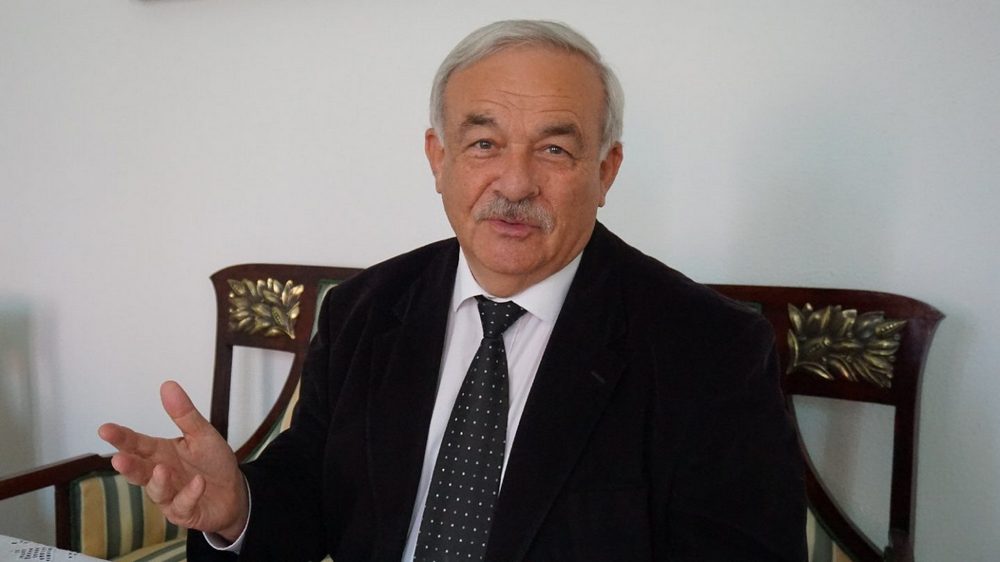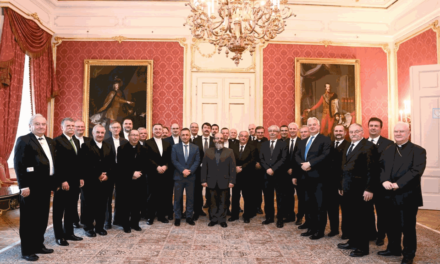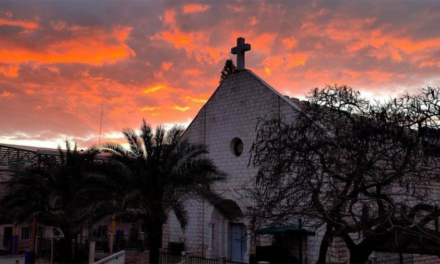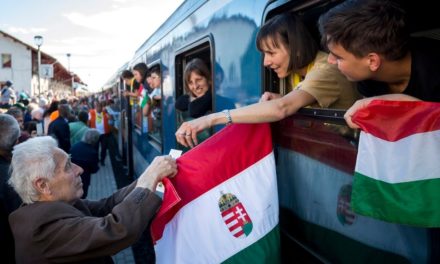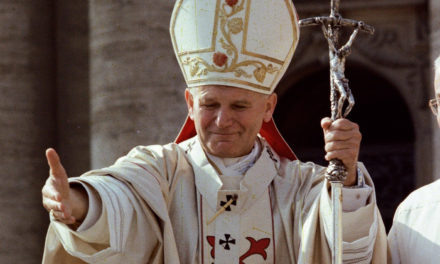For the apocalyptic state of the world, no one knows any other solution, we can give no other solution, except faith in Christ. Everything around us seems to be falling apart, the origin has moved out of place. hirado.hu about the day of Reformed unity and staying in the Carpathian basin . Collegium Academicum in Gyulafehérvár 400 years ago .
"The world is in turmoil." We haven't even recovered from the coronavirus epidemic, when powers in our immediate neighborhood were straining against each other. The Reformed Carpathians, on the other hand, invite those who wish to celebrate without religious affiliation to the unity day. Why would it be especially important to experience unity now?
– In 2009, the ten Reformed church districts of the Carpathian Basin decided to establish a universal convention corresponding to the state of the Reformed Church before 1918. When this was legally established, we decided to devote the last Sunday of May every year to the day of unity, to meet each other. In the past thirteen years, this initiative has become a noble tradition. In such cases, the Reformation moves from the Southern Region to the Székelyföld. However, due to the epidemic, the last two years were missed. In 2020, we would have gathered in Marosvásárhely. This year was of symbolic importance because of Trianon. The date a hundred years ago lives in the memory of our communities as a terrible year. We thought,
we respond to the historical memento by consecrating and blessing a hundred renovated churches.
This could not be done due to the closures. However, the holiday is now possible again. It is understandable when I say that we are hungry for an encounter that has extraordinary power and fills us all. This year also has a strong symbol, we remember that four hundred years ago Gábor Bethlen founded the famous Collegium Academicum in Gyulafehérvár. That is why we are calling the Unity Day meeting in Gyulafehérvár to celebrate together there.
- Mr. Bishop returned from Gyulafehérvár a few minutes before our conversation, because starting from May 19, the ancient historical city of Transylvania will host the Day of Hungarian Reformed Unity . They are preparing for a multi-day event for the joy of the faithful. What can Unity Day give to those who have distanced themselves from the church and the community, but are now looking for points of identification?
– Every such meeting is also an opportunity for the mission. If we see a happy, joyful community, then there is a desire in man to want to be a part of it.
After the narrow years, we can hope that it will occur to many to seek the community of the Reformed,
the possibility of being together. Based on the example of recent years, we see that "opportunities must be taken at a price" ( ed.: Ephesians 5: 16-17) , since there are times when it is not possible. That's why we have to appreciate such opportunities, before the 90s we couldn't meet at all, then the epidemic came and now the war is here, which forces us to live from today to tomorrow so much that it makes future opportunities doubtful. So I just ask everyone to come among us now and let's get stronger.
– Is it possible to perceive, as a result of the uncertainty of the war situation, that the faithful are turning even more towards the church and through this to God?
- In many cases, fear makes a person gather, it is more difficult to be afraid alone somewhere, to get through it, than to be in a community, in a crowd. The virus removed some. We ourselves said, in view of the epidemic situation, to stay at home, not to come. Although before, we were always invited to fellowship. This is someone who has caused confusion, removed something that needs to be bridged. I believe that people look for support and shelter during the disaster of war. They are together, they pray together, they stick together and they are happy about this community.
"Christ is the future, let's follow him together" was the motto of the Unity Day organized on May 22, 2009. When they restored the unity between the existing church bodies that existed before, but ceased due to historical reasons. What were the expectations then and more than ten years after the events and the establishment of unity, were the expectations fulfilled?
– When we chose this motto, we tried to be able to articulate for everyone the vision we envision for the life of the church and the community.
When we say: "Christ is the future" - then we express that no one can solve the apocalyptic state of the world, we can give no other solution but faith in Christ. We try to teach each other this, we try to connect ourselves to it, it is impossible without it. What can we trust?
Everything around us seems to be falling apart, the origin has moved out of place. Christ, however, remains a fixed point.
- At the beginning of the regime change, the Transylvanian church district still counted half a million Reformed, now this number can be increased to three hundred thousand. Although the decline is significant, you did not give up and did not care about the slow passing away, but started building, investing in the future. 2022 is the year of Transylvanian Reformed education. Several investments will be completed this year, the renovation of dormitories in Marosvásárhely, Sepsiszentgyörgy and Kézdivásárhely is also progressing. In addition, several kindergartens are being built throughout Transylvania. Is it still worth thinking in terms of a nation?
– Transylvanian Hungarians have been living in the magic circle of the school and the church for a hundred years now. As Sándor Reményik put it in his poem The Temple and School. We have no other option but to build and maintain these two. If anyone imagines any kind of future here in Transylvania, they have no other chance but to keep these very well-defined frameworks and fill them up again and again. If there is no mother tongue education, there is no Hungarian-speaking Reformed Church. If the school ceases somewhere, then it is only a matter of time and the church will also cease there.
Our five-hundred-year past has constantly taught us to acquire our knowledge and self-identity in our mother tongue.
In the past ten years, with the support of the Hungarian government, we have tried to make up for the shortfalls of previous times. We renovated kindergartens, schools, universities and other cultural institutions, and created new ones.
– Do Hungarian parents send their children to Hungarian schools? Are they looking for the community where their identity can merge with that of the motherland?
– Yes, this is very important, but those who organize the life of the community must see not only the light, but also the shadow, human frailty and weakness. If the Hungarian school is far from the family's place of residence, eighty to one hundred kilometers away, relatively few parents choose to take their children to the Hungarian school at all costs. He prefers the simpler option and enrolls his child in a Romanian school. We already lost here, because they blend in. Therefore, whoever plans the life of the Hungarian community responsibly must strive to have as many institutions as possible, as close as possible, where we can keep people. The Hungarian government also supports this. If we want to stay, this is the only right way. We can raise these institutions to such a level that they also meet the challenges of the present. The many kindergartens and schools, Sapientia is also a success story, but the support provided to sports also strengthens the identity, I cannot name an institution that does not fulfill this role, even one last pub is important if it organizes a community.
Transylvanian Hungarians can only survive through their institutions. We have no other chance. When they are lost, we become a memory.
We don't want that, we preach in 1,150 places, and as long as our churches and institutional systems are here, it is our responsibility to carry what was carried by 500,000 people until now by 300,000. You have to grow up and be self-aware for that.
- A population census is also taking place in Transylvania. How can the Reformed Church help those who belong to the Hungarian nation in their identity and language be visible?
– The world thinks and judges in numbers. When you have to represent a cause and talk about collective rights, it doesn't matter how big the crowd is behind you. It takes a lot of talking to people to make sure everyone understands this exactly. What kind of tools we have is another question. A new kind of census technique has now been introduced in Romania, which is actually self-counting and gives us the opportunity to mobilize and encourage people. It is necessary to explain in very simple words what follows from what. Now we perceive that the Transylvanian Hungarians will count themselves as fifty percent. There is a greater willingness to do this in counties with a majority of Hungarians than in other regions. We encouraged the pastors of the Reformed Church to encourage their followers to confess their faith and their Hungarianness to the world, because it is related to the future. You have to bravely seek connection, work to reach as many people as possible.
Béla Kató was born in 1954 in Barátos, Kovászna county. He graduated from the Reformed faculty of the Protestant Theological Institute in Cluj in 1979. From 1977, he also studied at the Lutheran Theology in Great Sibiu for one year. After that, he served as a pastor in Cófalván, and then as a parish priest of the Reformed parish in Illyefalvá. Since 2003, he has been the chairman of the Board of Trustees of the Sapientia Foundation. In December 2012, he was elected bishop of the Transylvanian Reformed Church District for the first time. In 1994, he received the Gábor Bethlen Award, and in 1995 he won the Award for Minorities of the Government of the Republic of Hungary. In 2004, he was awarded the Medal of Merit of the President of the Republic of Hungary, and in 2017, he was awarded the Award for Hungarians Abroad, and in 2021, he was awarded the middle cross with a star of the Hungarian Order of Merit. Married, father of two children.
Source and photo: hirado.hu

